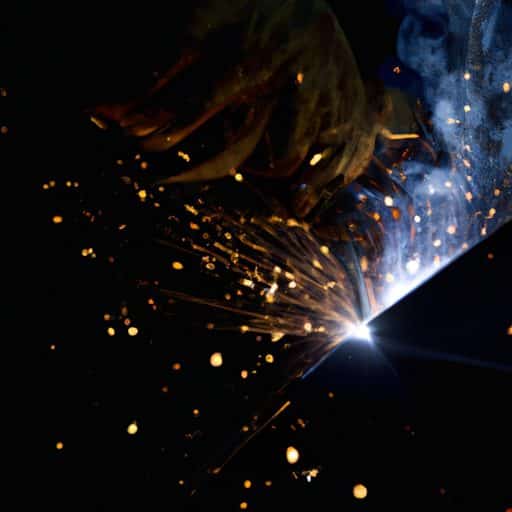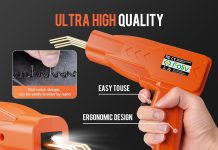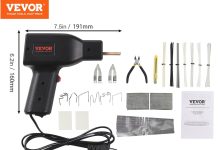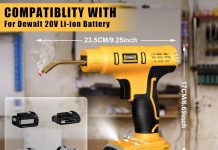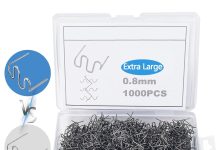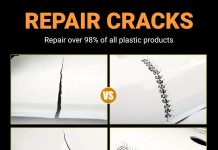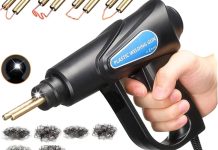Shielded Metal Arc Welding (SMAW), commonly known as stick welding, is a versatile and widely used technique in the field of welding. This article explores the numerous advantages of employing SMAW for field welding projects. From its simplicity and accessibility to its ability to be performed in various weather conditions, SMAW offers a range of benefits that make it a popular choice among welders. In addition, we will discuss the effectiveness of SMAW in producing high-quality and durable welds, ensuring the longevity and structural integrity of the welded parts. So, if you’re curious about the advantages of using shielded metal arc welding for field welding, read on!
Review contents
Enhanced Portability
Lightweight Equipment
One of the major advantages of using shielded metal arc welding (SMAW) for field welding is the enhanced portability it offers. The equipment used in SMAW is relatively lightweight compared to other welding processes, making it easy to transport from one location to another. This is particularly beneficial for outdoor construction projects or situations where frequent movement is required. The lightweight nature of the equipment makes it convenient for welders to carry it around without straining themselves.
No External Power Source Needed
Another advantage of SMAW for field welding is that it does not require an external power source. Unlike some other welding processes that rely on electricity, SMAW utilizes an electric current generated by the welding machine itself. This eliminates the need for access to electricity, which can be challenging in remote or off-grid locations. The self-sufficient nature of SMAW equipment allows welders to work in areas where power sources are limited or unavailable.
Wide Application Range
Suitable for Various Metal Types
SMAW is known for its versatility when it comes to welding different types of metals. Whether you are dealing with carbon steel, stainless steel, or even cast iron, SMAW can deliver excellent results. This makes it a popular choice for field welding, as it eliminates the need for multiple welding processes or equipment. With SMAW, welders can effectively join various metal types, reducing the complexity and time required for different welding applications.
Ideal for Outdoor Welding
Due to its ability to withstand outdoor conditions, SMAW is considered ideal for field welding. Whether it’s repair work on heavy machinery or welding structures in remote locations, SMAW proves to be a reliable choice. It can withstand exposure to elements such as rain or wind, making it a suitable option for outdoor construction projects. This resilience makes SMAW a popular choice for welders who often find themselves working in unpredictable weather conditions.
Can Be Used in Confined Spaces
In addition to its versatility in outdoor environments, SMAW can also be used in confined spaces. The compact nature of the equipment allows welders to navigate tight spaces and reach difficult-to-access areas. This makes SMAW well-suited for welding applications in narrow pipelines, cramped machinery, or other confined spaces. The ability to adapt to different working conditions further highlights the wide application range of SMAW for field welding.
Cost-Effective
Affordable Equipment
For those looking for a cost-effective welding solution, SMAW provides an excellent option. The equipment used in SMAW is generally more affordable compared to other welding processes such as gas metal arc welding (GMAW) or tungsten inert gas welding (TIG). This makes it a viable choice for welders who may have budget constraints. Affordable equipment eliminates the need for significant upfront investments, making SMAW financially accessible for various operators.
Lower Operating Costs
In addition to the affordability of the equipment, SMAW also offers the benefit of lower operating costs. The consumable electrodes used in SMAW are relatively inexpensive compared to the filler materials required in other welding processes. This reduces the overall material cost involved in field welding projects, contributing to cost savings. Moreover, the simplicity of the SMAW process results in reduced labor costs, as minimal operator skill requirements and easy setup decrease the time required for each weld.
Minimal Maintenance
SMAW is known for its durability and resilience, requiring minimal maintenance compared to some other welding processes. The simplicity of the equipment used in SMAW results in fewer components that can malfunction or require regular upkeep. This reduces the need for frequent repairs or replacements, further contributing to the cost-effectiveness of SMAW. Welders can focus more on their work rather than spending significant time and effort on equipment maintenance.
Versatile Electrodes
Easily Accessible and Affordable
One of the key components of SMAW is the electrode, which plays a vital role in the welding process. The electrodes used in SMAW are readily available in the market, making it easy for welders to acquire them whenever needed. Additionally, the electrodes are relatively affordable compared to the consumables used in other welding processes. This accessibility and cost-effectiveness of electrodes make SMAW a practical choice for field welding applications.
Compatible with Different Welding Positions
SMAW electrodes are designed to be versatile and compatible with different welding positions. Whether you need to weld in a horizontal, vertical, or overhead position, SMAW electrodes can adapt to the specific requirements. This flexibility enhances the usability of SMAW in various field welding scenarios, allowing welders to achieve quality welds with ease. The compatibility with different welding positions greatly expands the range of applications where SMAW can be employed.
Suitable for Thick and Thin Metal
Another advantage of SMAW electrodes is their suitability for welding both thick and thin metal. The electrodes can be selected based on the thickness of the material being welded, ensuring optimal results. This versatility eliminates the need to switch between different welding processes or equipment when encountering varying material thicknesses. Welders can rely on SMAW electrodes to provide consistent and strong welds, regardless of the metal thickness they are working with.
Good Penetration
Deep Welding Capability
SMAW is known to deliver deep welding penetration, resulting in strong fusion between the parent metal and the weld metal. The electrode used in SMAW produces a high level of heat, allowing it to penetrate through even thick metal sections. This deep welding capability ensures the integrity and strength of the weld, making it highly reliable for field welding applications. The ability to achieve strong fusion is crucial for ensuring the longevity and safety of welding joints.
Strong Fusion between Parent and Weld Metal
The heat generated by the SMAW electrode, combined with the proper welding technique, promotes a strong fusion between the parent metal and the weld metal. This ensures that the welding joint is secure and able to withstand the stresses and strains it may encounter in its operational life. The strong fusion achieved through SMAW contributes to the overall structural integrity of the welded components, providing peace of mind to welders and ensuring long-lasting welding results.
Can Weld in Challenging Conditions
Can Be Used in Rainy or Windy Environments
SMAW is well-suited for field welding in challenging weather conditions, such as rain or wind. The shielding provided by the flux coating on the electrode protects the welding arc from the adverse effects of environmental factors. This allows welders to continue working without interruptions, even when faced with less-than-ideal weather conditions. The ability to withstand rain and wind makes SMAW a reliable choice for outdoor welding projects that cannot be postponed due to weather constraints.
Resistant to Atmospheric Contaminants
In addition to adverse weather conditions, SMAW is resistant to atmospheric contaminants that can negatively impact other welding processes. The flux coating on the electrode acts as a barrier against contaminants such as dirt, dust, and moisture. This shielding effect keeps the welding arc stable and prevents the formation of defects in the weld. Welders can rely on SMAW to produce high-quality welds, even in environments where atmospheric contaminants are present.
Suitable for High-Moisture Environments
SMAW is particularly useful for field welding in high-moisture environments. The flux coating on the electrode not only protects against atmospheric contaminants but also provides additional protection against moisture. This makes SMAW a suitable choice for welding applications in industries such as shipbuilding or offshore construction, where exposure to water is inevitable. Welders can confidently use SMAW in high-moisture environments, ensuring robust welds that can withstand the challenges posed by water-related conditions.
Ease of Use
Simple Equipment Setup
SMAW stands out for its simplicity and ease of use. The equipment setup involved in SMAW is straightforward, allowing welders to get started quickly. With minimal components and requirements, the time spent on equipment preparation is significantly reduced. This is especially advantageous for field welding, where efficiency and productivity are key. Welders can focus on the welding process itself rather than spending excessive time on equipment setup and preparation.
Minimal Operator Skill Requirements
SMAW is often considered one of the more forgiving welding processes when it comes to operator skill requirements. While proper training and experience are essential, SMAW can be mastered relatively quickly compared to more complex welding methods. This makes it accessible to welders at various skill levels, allowing them to experience success and produce consistent welds. The minimal operator skill requirements of SMAW contribute to its popularity, particularly in field welding scenarios where the workforce may consist of welders with varying levels of expertise.
Easy to Learn
The simplicity of SMAW extends to its ease of learning. New welders can grasp the basics of SMAW relatively quickly compared to other welding processes. This is beneficial for industries that have a constant need for welding operators, as it allows for faster training and onboarding processes. The ease of learning SMAW makes it a practical choice for outdoor construction projects or situations where there might be frequent turnover in the workforce. Welders can quickly adapt to SMAW and contribute to the field welding operations.
Suitable for Outdoor Construction Projects
Welding Structures in Remote Locations
Field welding often involves working on structures in remote locations, such as bridges, pipelines, or power transmission towers. SMAW’s versatility and portability make it an ideal choice for such projects. The ability to transport the lightweight equipment to remote sites, along with SMAW’s resilience against various environmental challenges, ensures that welding can be carried out successfully in these demanding conditions. SMAW enables welders to join metal structures securely, even in the most isolated and challenging locations.
Can Be Used in Heavy Construction Sites
SMAW’s suitability for outdoor construction projects extends to heavy construction sites as well. Whether it’s welding at mining operations, oil refineries, or large infrastructure projects, SMAW can effectively meet the welding requirements. The robust nature of SMAW allows it to withstand the harsh conditions often encountered in heavy construction sites, ensuring the safety and reliability of the welded structures. Welders can rely on SMAW to deliver consistent results in demanding and high-pressure environments.
Safety Advantages
Protects Against Harmful UV and IR Radiations
Safety is of utmost importance in any welding process, and SMAW offers several advantages in this regard. The flux coating on the electrode used in SMAW acts as a shield against harmful ultraviolet (UV) and infrared (IR) radiations. This protection reduces the risk of welders developing eye injuries or skin burns caused by prolonged exposure to these radiations. By mitigating these health hazards, SMAW ensures a safer working environment for welders engaging in field welding activities.
Reduces Hazardous Fumes and Gases
SMAW also contributes to a safer work environment by reducing the exposure of welders to hazardous fumes and gases. The flux coating on the electrode produces a layer of slag that acts as a barrier, preventing the escape of harmful fumes during the welding process. This minimizes the inhalation of toxic substances, protecting the respiratory system of the welders. Additionally, the absence of shielding gases further eliminates the risk of asphyxiation or explosion that can occur with certain other welding processes.
Effective for Pipe Welding
Preferred Method for Pipe Construction
SMAW is a preferred method for pipe welding, making it a popular choice for field welding in this specific application. The ability of SMAW electrodes to deliver deep penetration and strong fusion is crucial for creating secure and long-lasting pipe welds. The suitability of SMAW for different pipe diameters and thicknesses further enhances its effectiveness in this field. Pipe construction projects can benefit from the reliability and efficiency provided by SMAW, resulting in high-quality welds that meet industry standards.
Suitable for Welding Pipelines
In addition to pipe construction, SMAW is widely used for welding pipelines. Whether it’s oil and gas pipelines or water supply lines, SMAW proves to be a reliable choice. The ability of SMAW to withstand a wide range of environmental challenges, including moisture and atmospheric contaminants, ensures the integrity of pipeline welds. SMAW ensures that pipelines are securely joined, enabling the efficient and safe transport of various fluids or gases.
In conclusion, shielded metal arc welding (SMAW) offers numerous advantages for field welding applications. Its enhanced portability, wide application range, cost-effectiveness, versatile electrodes, good penetration, ability to work in challenging conditions, ease of use, suitability for outdoor construction projects, safety advantages, and effectiveness in pipe welding make it a popular choice for welders in various industries. The robustness, reliability, and simplicity of SMAW equipment and electrodes contribute to its success in achieving high-quality welds in demanding field welding scenarios. Whether it’s welding structures in remote locations or joining pipelines, SMAW proves to be a valuable and efficient welding process for field welding.
